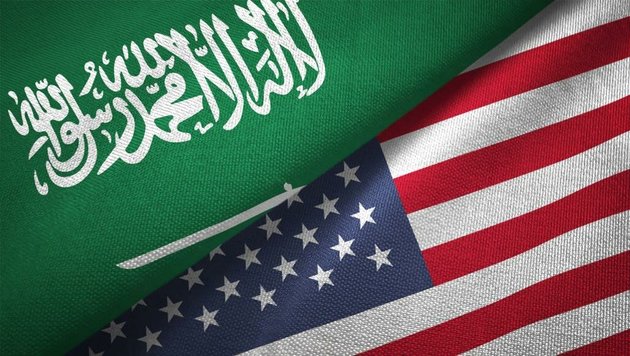If the current situation of the Saudi-American relationship is described as an irrevocable divorce, this would be unfair, wishful thinking. The two countries would never accept the severance of relations no matter how divergent their views happen to be. Perhaps the most accurate description of the relationship is that it has been about setting aside issues of contention and restructuring relations and rebuilding them anew in a manner that would guarantee the interests and attend to the concerns of both partners.
Middle East Monitor reports that the restoration of relations to the warmth they were at previously is very possible and the attempt by the Americans to compensate for the loss of Saudi capabilities by going to smaller countries in the region has been unsuccessful. In all its security and political projects around the world Washington is in need of a big partner that is comparable to it in size. Riyadh is able to make its infinite resources available to its partners without batting an eyelid.
Political disagreements or divergence over some files between Riyadh and Washington did not begin with the arrival of Biden in the White House. Nor did this happen because Biden, his administration's team and his party are at odds with Prince Mohammad Bin Salman, as propagated by the Western media.
Signs of disagreement started showing openly about two decades ago. Over a period of more than 80 years, the oil-rich kingdom, and the most important source of energy, has been at the centre of the election storm and at the core of disagreements between the two ruling parties in America.
Saudi Arabia has always been different and has always been the one upon which disagreements occur. Every new administration stumbled in its relationship with Riyadh during its first few months as a result of misunderstanding the relationship with Riyadh. Then, the relationship would gradually improve because Riyadh is honest in its opposition, truthful in its alliance, respects those that respect it and refuses to be a subordinate to anyone, drawing the red lines and insisting on them.
The Americans and the West in general think that the Saudis are unique, especially as they try and deal with other politicians in the region. This is true, for you have to accept them for what they are, they are Bedouins, civilised and shrewd politicians. They pretend to be inattentive but they are aware of the threats facing them. They are very decisive when it is time for confrontation. They are tender with their friends but extremely tough with their enemies. They own palaces and yet they dwell in tents in the desert. Hence, they are different from all the boys and traitors who ruled in some parts of the Arab world and with whom the West dealt since the beginning of the last century and until today.
Saudis are a unique case summed up by King Abdul Aziz, May Allah bless his soul: "have made it my way and my principle not to initiate aggression ever but I observe patience until no more patience is left and then I strike, and my blow is fatal." And so did King Faisal in his famous speech in which he said: "We are purer than pure honey for those who seek our friendship but we are a lethal venom for those who try to disrupt our ranks. Saudis cannot be but independent in their behaviour and opinion; they do not succumb to pressures or threats, nor do they agree to be subordinates to any pact or state irrespective of the consequences."
King Fahad expelled Washington's ambassador after he intervened in things that did not concern him. Fahad purchased the weapons he needed from China without paying attention to anyone. As for the British, he severed ties with them when they broadcast a malicious film in the early eighties. Faisal too suspended oil supplies to the entire West and bought weapons for Egypt. King Saud supported the Algerians and the Tunisians against the French in the struggle for independence.
He stood against the British and refused to lease to them an inch of Saudi territory after they offered to rent the Eastern Province for a period of 99 years as they did with China over Hong Kong.
The disclosure by Washington the day before yesterday of some of the documents relating to September 11, and prior to that the US' rough dealings with one of America's most important allies in the region amount to a perusal of the policy of brinkmanship. Although some wise people believe that the two allies are capable of working together in a region of mutual interest and that they are unlikely to head in the direction of complete severance of ties, the White House should understand that it is playing with fire. It should also know that it is the one that risks burning the crops which were planted 80 years ago and once the harvest is set on fire the crops will be lost for good.






